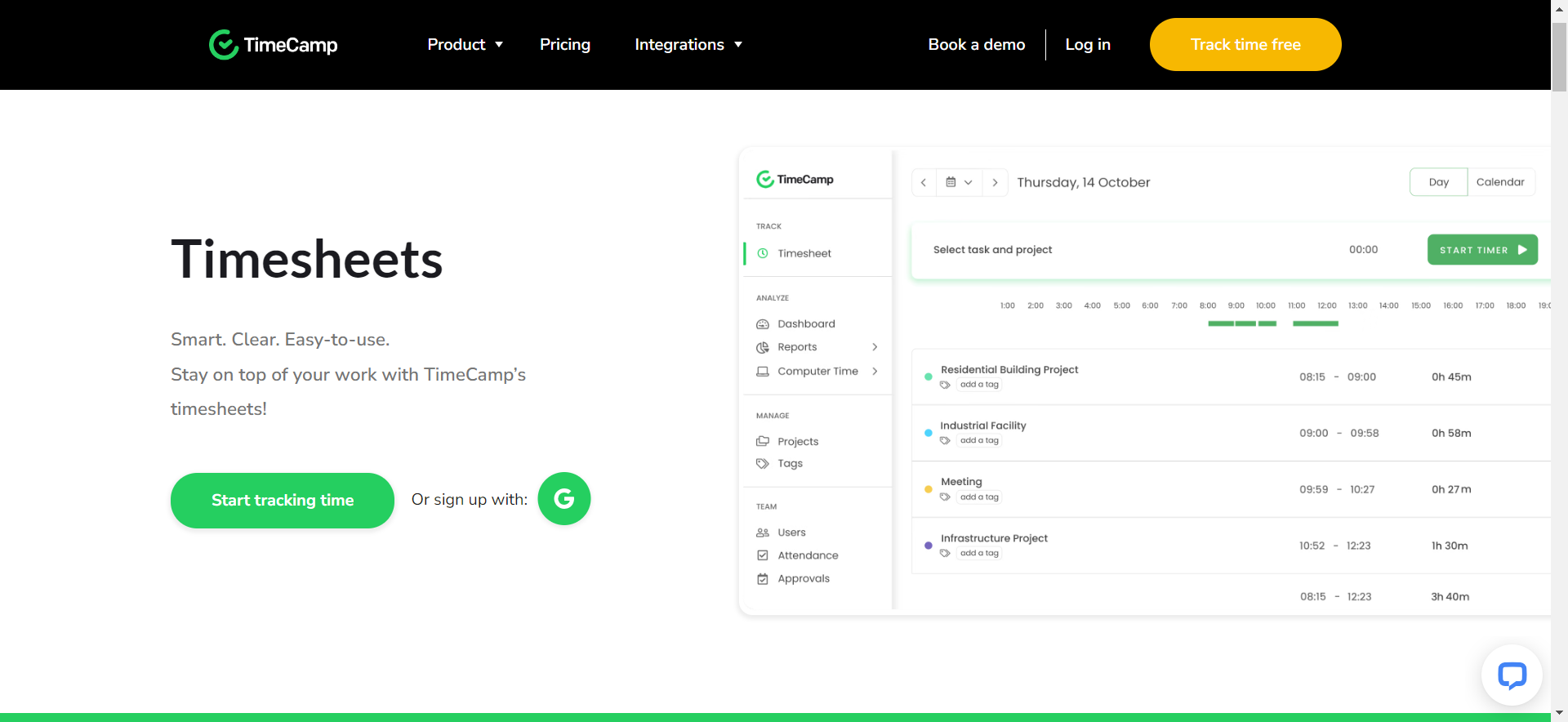Enhancing Small Business Efficiency with Time Tracking
- 1 The Vital Role of Time Tracking in Small Businesses
- 2 TimeCamp’s Timesheet Feature: A Tool for Efficient Time Management
- 2.1 Key Features of TimeCamp’s Timesheet
- 2.2 Implementing Time Tracking Successfully in Your Business
- 2.3 Expanding Your Approach to Time Tracking
- 3 Conclusion: The Path to Business Growth Through Time Tracking
In the realm of small businesses, where resources are precious and margins are tight, efficient management of time is not just a practice but a necessity. The adoption of time-tracking tools and techniques can be a game-changer for small businesses, leading to enhanced productivity, better project management, and more effective resource utilization. This article delves into the significance of time tracking in small businesses and introduces essential tools and strategies for effective time management.
The Vital Role of Time Tracking in Small Businesses
Time tracking in small businesses is more than just a routine recording of hours; it represents a strategic approach to comprehending and enhancing how each hour contributes to the overarching business goals. By systematically monitoring the allocation of time, small businesses gain valuable insights into their operational dynamics. This goes beyond a mere clock-in, clock-out routine, transforming into a powerful tool for business optimization.
Effective time tracking serves as a diagnostic tool, allowing businesses to identify areas of inefficiency. It provides a granular view of how time is spent on various tasks and projects, revealing patterns that may otherwise go unnoticed. This insight becomes instrumental in streamlining workflows, eliminating bottlenecks, and enhancing overall operational efficiency. Small businesses, often characterized by limited resources, can benefit significantly from this optimization as it allows for a more judicious allocation of time and effort.
TimeCamp’s Timesheet Feature: A Tool for Efficient Time Management

At the forefront of time tracking solutions is TimeCamp’s Timesheet feature, tailored for small business needs. This feature, part of TimeCamp’s comprehensive suite, simplifies time tracking while offering in-depth insights into time usage. Explore how this tool can transform your business’s approach to time management by visiting Timesheet App.
Key Features of TimeCamp’s Timesheet
TimeCamp, a versatile time-tracking software, is distinguished by its user-friendly interface and robust reporting capabilities. The Timesheet feature within TimeCamp is particularly noteworthy for its intuitive design and comprehensive reporting functionality. This specific feature facilitates the easy tracking of employee hours, ensuring a simplified and efficient process for monitoring work hours.
The Timesheet feature also plays a crucial role in providing insights into project time allocation. By utilizing this functionality, organizations can gain a deeper understanding of how time is distributed across different projects. This insight proves invaluable for project management, aiding in the optimization of resource allocation and project timelines. The detailed reporting aspect further enhances transparency within the team, promoting accountability and aiding in data-driven decision-making.
Another significant aspect of TimeCamp is its seamless integration with other business tools. The software harmoniously works with various tools commonly used in business operations, eliminating silos and promoting a more interconnected workflow. This integration not only reduces manual data entry but also minimizes the likelihood of errors, contributing to overall efficiency in time management processes.
For small businesses seeking to improve their time-tracking practices, TimeCamp, with its intuitive design, detailed reporting through the Timesheet feature, and integration capabilities, offers a practical solution. It caters to the specific needs of organizations that value simplicity and effectiveness in their time management efforts.
Implementing Time Tracking Successfully in Your Business
Implementing a time-tracking system like TimeCamp’s Timesheet feature requires more than just software installation. It involves educating your team about the benefits of time tracking, not just for the business, but for their personal productivity and professional development. Clear guidelines should be established to ensure consistent and accurate time recording across all departments. It’s also crucial to foster a culture where time tracking is viewed not as a chore or surveillance, but as an essential aspect of professional development and business growth. Engaging employees in the selection and implementation process can lead to better acceptance and usage of the tool. Additionally, regular feedback sessions can help in refining the process, making it more effective and aligned with business objectives.
Expanding Your Approach to Time Tracking

For small businesses looking to tailor their time-tracking strategies to their unique needs, additional resources are key. The comprehensive guide on Time tracking for small business offers valuable insights and practical advice, making it an indispensable resource for businesses aiming to optimize their time management practices.
Conclusion: The Path to Business Growth Through Time Tracking
In conclusion, the integration of effective time-tracking practices is vital for the growth and efficiency of small businesses. Utilizing tools like TimeCamp’s Timesheet feature and embracing strategic time management can lead to significant improvements in business operations. Time tracking is not just about measuring hours; it’s about leveraging time as a strategic business asset.

















